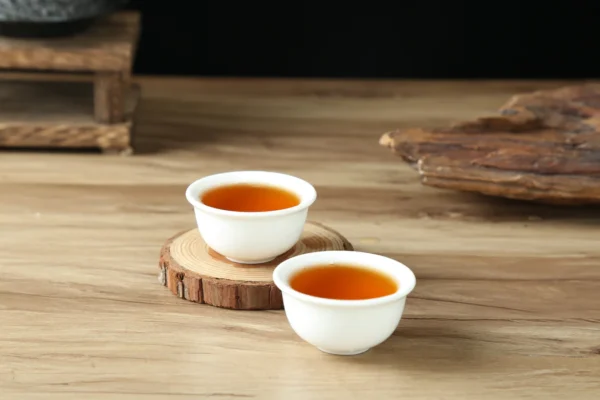
Eat Your Way to Better Skin, Expert Shares Top Foods to Eat, and What Foods to Avoid

Leading microbiome skincare brand Beauty & Vitality, has released expert advice on what foods you should eat to achieve a radiant complexion and what foods could be causing problematic skin.
Research has shown that 20% of people are unhappy with their skin, and 83% say their appearance is important to their general well-being. Our diet plays a vital role in nourishing our skin and giving us a glow that makes us look and feel healthy. Obviously, your skincare routine is an important component of good skin, but should be complemented with a healthy diet of antioxidant-rich foods.
Shona Wilkinson, Lead Consultant Nutritionist lists below the foods you should eat for good skin and what foods to avoid.

Foods for good skin
Berries: Nature’s Sweet Antioxidants
Berries, including blueberries, strawberries, raspberries, and blackberries, are treasure troves of antioxidants, such as vitamin C and flavonoids. These compounds counteract the damage caused by free radicals, reducing skin ageing and promoting a healthy, vibrant complexion. Incorporate a variety of fresh, whole berries into your diet to harness their skin-protective benefits.
Green Leafy Vegetables: The Skin’s Superfood
Our favourite antioxidant-rich foods for good skin are fresh, green leafy vegetables. The best leafy veggies include:
- Spinach
- Kale
- Romanesco
These vegetables are packed with vitamins, minerals, and antioxidants, notably beta-carotene and lutein, which are known for their skin-rejuvenating properties. The nutrients in these antioxidant-rich foods help protect the skin from sun damage and environmental pollutants, aiding in skin repair and renewal. Make greens a staple in your meals for a radiant, healthy skin barrier.
Nuts and Seeds: The Essential Fatty Acids Boost
Unroasted nuts and seeds, such as almonds, walnuts, flaxseeds, and chia seeds, are excellent sources of essential fatty acids, vitamin E, and selenium. These antioxidant-rich foods are essential for good skin. Their skin-loving nutrients help maintain skin moisture and elasticity and protect against oxidative stress, contributing to a smoother, more youthful appearance. If you’re currently going through menopause, we recommend increasing your intake of nuts and healthy seeds.
Whole Grains: Fibre-filled Skin Detoxifiers
Whole grains like brown rice, quinoa, and oats are rich in fibre, antioxidants, and B vitamins, supporting gentle detoxification and reducing inflammation. Their low glycaemic index helps stabilise blood sugar levels, preventing the collagen damage associated with sugar spikes, thus maintaining the skin’s firmness and reducing the risk of premature ageing.
Fatty Fish: Omega-3 Filled Glow Givers
Salmon, mackerel, and sardines are abundant in omega-3 fatty acids, which are essential for maintaining skin cells’ health. Omega-3s strengthen cell membranes, ensuring they remain flexible and hydrated. This results in plump, moist skin that radiates health from within. Incorporating fish into your diet a few times a week can significantly enhance your skin’s health and appearance.
Embrace Skincare from the Inside Out
Adopting a diet rich in these antioxidant-packed, real foods gives your skin the nutrients it needs to thrive naturally. Beyond the aesthetic benefits, this approach promotes overall health and well-being, reflecting the beauty of nourishing the body mindfully. Incorporating all of the nutrients you need will also support you if you’re going through perimenopausal or menopausal symptoms, as you will help restore your gut microbiome.
Foods to avoid to improve your skin
Dairy
Numerous scientific studies and strong clinical evidence support the link between dairy and acne. The high levels of hormones in milk, along with its acidic protein type, may stimulate oil glands in the skin, encouraging the development of spots and blemishes. In contrast, numerous people have found relief from blemishes after completely eliminating dairy from their diet. If you want to eliminate dairy entirely – as with any other food group – it can be best to work with a nutritional therapist to ensure you are not missing out on vital nutrients.
Alcohol
While it’s okay to enjoy the occasional drink, excessive alcohol consumption can dehydrate the skin and make it look worn down. One reason alcohol is so intoxicating is its dehydrating effect on the body. This can have a direct drying effect on the skin, leaving it looking worse for wear.
Chocolate
Dutch researchers discovered that chocolate consumption can release compounds that affect the immune system, resulting in acne. This effect is maximised when excessively sweet and milky varieties are chosen. Instead, try to consume chocolate in moderation and eat the varieties with a higher cacao percentage, such as dark chocolate.
High-glycemic foods
Foods rich in sugar and refined carbohydrates have long been associated with a poor complexion. This association is confirmed by a recent study linking acne flare-ups to the intake of high-glycemic foods.
Coffee
Coffee has a strong diuretic effect that can dehydrate the body, with signs usually appearing first in the skin. Common symptoms include skin dryness and blotching. To combat this, limit the amount of coffee you consume to two cups per day while also drinking two glasses of water for every cup of coffee consumed.
Salt
If you drink plenty of water and avoid too much salt, you will feel much less bloated as you won’t retain water. In contrast, water is retained when you add salt to the mix. Salt does make things taste good but the simple fact is excess sodium is bad for your skin and your heart. An overabundance of sodium can lead to high blood pressure and a lack of adequate blood flow on top of fluid retention, leaving your skin looking dried out. If you know someone who always has bags under their eyes, it may be because of too much sodium in their diet!
However, it’s important to note that not everyone needs to avoid salt. If you always make your own home-cooked food and don’t eat any processed foods (or only very little), adding some salt is often fine because you will get very small amounts of sodium otherwise. Another situation when adding salt to food (but not processed foods) may be beneficial is if you have low blood pressure. Check with your doctor if you’re unsure.
Fried Foods
Fried foods—especially those fried in vegetable oils—are often full of trans fats that have zero benefit to your body. They may also cause your insulin to skyrocket, leading to inflamed skin that can appear puffy and damaged. In the long term, you may also have to deal with the effects of increased cholesterol and blood pressure.















































